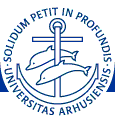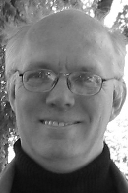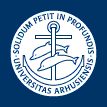



 |

|
 |
 |
Research project at the Faculty of Humanities, Aarhus University,
financed by Statens Humanistiske Forskningsråd (Danish Humanities Research Foundation).
This web page: Linguists in the project - Short project description
The other web pages of the project:
Long project description -
Publications -
Talks and hand-outs
Events arranged by the project:
Nov. 8, 2005: Presentation & reception -
June 14-17, 2006: Ph.D. course at Sandbjerg Estate -
Jan. 18-19, 2007: Workshop on Object Positions
| Tavs Bjerre | Post doc. |
Nordic Department, Aarhus University |
|
| Eva Engels | Post doc. |
English, Inst. of Language, Literature and Culture Aarhus University |
|
| Henrik Jørgensen |
Assoc. professor |
Nordic Department, Aarhus University |
norhj@cc.au.dk |
| Sten Vikner | Professor |
English, Inst. of Language, Literature and Culture Aarhus University |
sten.vikner@cc.au.dk |

Tavs Bjerre |

Eva Engels |

Henrik Jørgensen |

Sten Vikner |
The project Object positions - comparative syntax in a cross-theoretical perspective intends to apply the formal and the functional approach in a parallel fashion to a concrete empirical area (object positions). By comparing the different accounts of the same empirical data offered by the two approaches, it will be possible to investigate what and how much the two different approaches have in common, and also what separates them. It will furthermore be possible to see whether and to which extent one approach can be inspired and influenced by how the other approach goes about solving a particular problem. We are convinced that such synergy effects will be considerable.
The project is divided up into two subprojects, a functional one and a formal one, each of which will investigate a number of different constructions in Danish and other languages, under a series of thematic headlines, such as case theory, information structure, reference, and projection types.
The project is not just cross-theoretical but also comparative. We see comparative linguistics as a kind of linguistics that in addition to comparing languages empirically also seeks to account theoretically for as many surface differences as possible by deriving them from as few underlying abstract differences as possible. In this way, it is established which kinds of variation exist between languages, and which kinds do not exist, and thus important contributions may be made to our knowledge about the scope and the limitations of the human brain.


|
Dialect Syntax and Microvariation, 2003-2009 University of Konstanz Funded by the Deutsche Forschungsgemeinschaft. Principal Investigators: Josef Bayer, Ellen Brandner |

|
|
|
DanDiaSyn - Danish Dialect Syntax, 2007-2008 Aarhus University & University of Copenhagen Funded by the Danish Research Council for Culture and Communication. Principal Investigators: Henrik Jørgensen (AU), Karen Margrethe Pedersen (KU), Sten Vikner (AU) Research Assistants: Lena Wienecke Andersen (KU), Karen Thaagaard Hagedorn (AU) |

|
Structure and Linearization in Disharmonic Word Orders, 2007-2010 Cambridge University & Newcastle University Funded by the British Arts and Humanities Research Council. Principal Investigators: Anders Holmberg (NU), Ian Roberts (CU) Senior Research Assistant: Theresa Biberauer (CU) Research Assistants: Glenda Newton (CU), Michelle Sheehan (NU) |

|
|
Similarities and Differences between Clauses and Nominals, 2008-2011 Aarhus University Funded by the Danish Research Council for Culture and Communication. Principal Investigators: Steffen Krogh, Henning Nølke, Sten Vikner, Johanna Wood Research Assistant: Eva Engels, Ph.D. student: Katrine Tafteberg Jakobsen |

|
| This document is https://tildeweb.au.dk/au132769/objectpositions/index.htm | |
|
First posted: April 2005 - Last modified: March 16, 2008 - Technical modifications: July 30, 2022 Comments and suggestions to Sten Vikner |
|